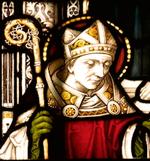Make your gift today!
Help keep Catholics around the world educated and informed.
Already donated? Log in to stop seeing these donation pop-ups.
Catholic Novels: The Shroud Codex
By Dr. Jeff Mirus ( bio - articles - email ) | Dec 06, 2010 | In Reviews
Jerome Corsi’s novel The Shroud Codex is a sustained examination of the evidence for the authenticity of the Shroud of Turin. Unfortunately, this evidence is presented in a work of fiction, so the reader has no way of knowing if the evidence is real or fanciful. This is a dubious way to promote the Shroud, and it is a complete failure as a novel.
Corsi is a best-selling author of conservative non-fiction, including The Obama Nation, America for Sale, Why Israel Can’t Wait, and The Late Great USA, and he is a senior staff reporter for World Net Daily. So it is not as if he has no credits. But his first novel rests on an unbelievable premise and depends on lackluster characters who, no matter how theoretically diverse, all seem depressingly the same.
The premise is that a young physicist-turned-priest dies, goes to Heaven, is reunited with his mother, and accepts a commission from God if he is willing to go back to earth, with his mother’s help. His commission is to “interpret” the secrets of the Shroud of Turin. He does this by reliving the various stages of the Passion of Christ in a way which attracts immense media attention, and then—in the presence of both the Pope and key scientists—he manifests all of Christ’s wounds while merging in mid-air with the Shroud of Turin in order to prove its authenticity. Then he and his mother are whisked back to heaven.
Along the way, Corsi takes extreme liberties with certain advanced concepts of modern physics in order to blur the distinctions among multiple dimensions, time travel, alternate universes, and (perhaps unintentially but inevitably) heaven, which does his story no good at all. And credulity is strained to the breaking point by the romance which develops between the Shroud priest’s mother, on loan to earth after a considerable stay in Heaven, and the atheist psychiatrist hired by the Pope to evaluate the Shroud priest’s mental health.
Please.
Now, I said in my opening installment that in the right hands almost anything could be well done. Unfortunately, The Shroud Codex does not demonstrate the truth of this thesis. As briefly noted above, all the characters—the Pope, the priests he assigns to work on the case, the psychiatrist, the various experts on the Shroud, the Shroud priest and his mother—appear to be exactly the same person imbued with different opinions. Indeed, except for their opinions, you could switch the dialogue around from one character to the next and not realize there had been any change of voice, so wholly inept is the characterization.
There is no escape for this book; it must bear the brunt of an immense literary wrath. But having said that, one hesitates to go on to say “I told you so.” One hesitates to assert that this is what happens when an author believes a novel cannot be “Catholic” unless it presents a complete Christ experience such that the reader can respond to it whole and entire. Granted that this is too often exactly what does happen, the problem is that it seems fairly clear that Corsi just doesn’t care. It would be an insult to his intelligence to suggest that Corsi was really trying to write a good novel despite a faulty view of what a “Catholic novel” must be. On the contrary, from first to last Corsi clearly intended The Shroud Codex not so much as a successful novel as an entertaining way to present his arguments about the authenticity of the Shroud of Turin.
Indeed, at every stage of the story we learn more about the Shroud, from one expert after another, both pro and con, with some characters attempting to disprove its authenticity and others providing the latest inexplicable evidence that the Shroud is something very special indeed. These learned disquisitions on the Shroud, sprinkled throughout the book, are by far the most interesting thing about it, as the author undoubtedly knows. And yet precisely because he has chosen a fictional setting to communicate all this Shroud data, Corsi compromises his purpose. As I indicated, there is no way for the reader to know whether Corsi intends the Shroud material to be accurate. It may, after all, be simply more wild fiction to complement his outlandish and utterly unconvincing plot. If you know something about the Shroud, you sense that these portions of the book are reliable, but if not?
Still, if you are fascinated by the Shroud, you might like this book simply because it is preoccupied with the Shroud, and because it presents so much evidence about the Shroud in a fast-paced and eminently understandable form. It was published by Threshold Editions, an imprint of Simon and Schuster, and it comes with a ringing endorsement from Bill Donohue of The Catholic League for Religious and Civil Rights (who, one can only presume, finds in Jerome Corsi a kindred spirit). But as any kind of novel, Catholic or otherwise, The Shroud Codex fails utterly. The only caveat is that it also fails, I would guess, more or less on purpose.
Previous in series: Catholic Novels: Theophilos
Next in series: Catholic Novels: Looking for the King
All comments are moderated. To lighten our editing burden, only current donors are allowed to Sound Off. If you are a current donor, log in to see the comment form; otherwise please support our work, and Sound Off!








